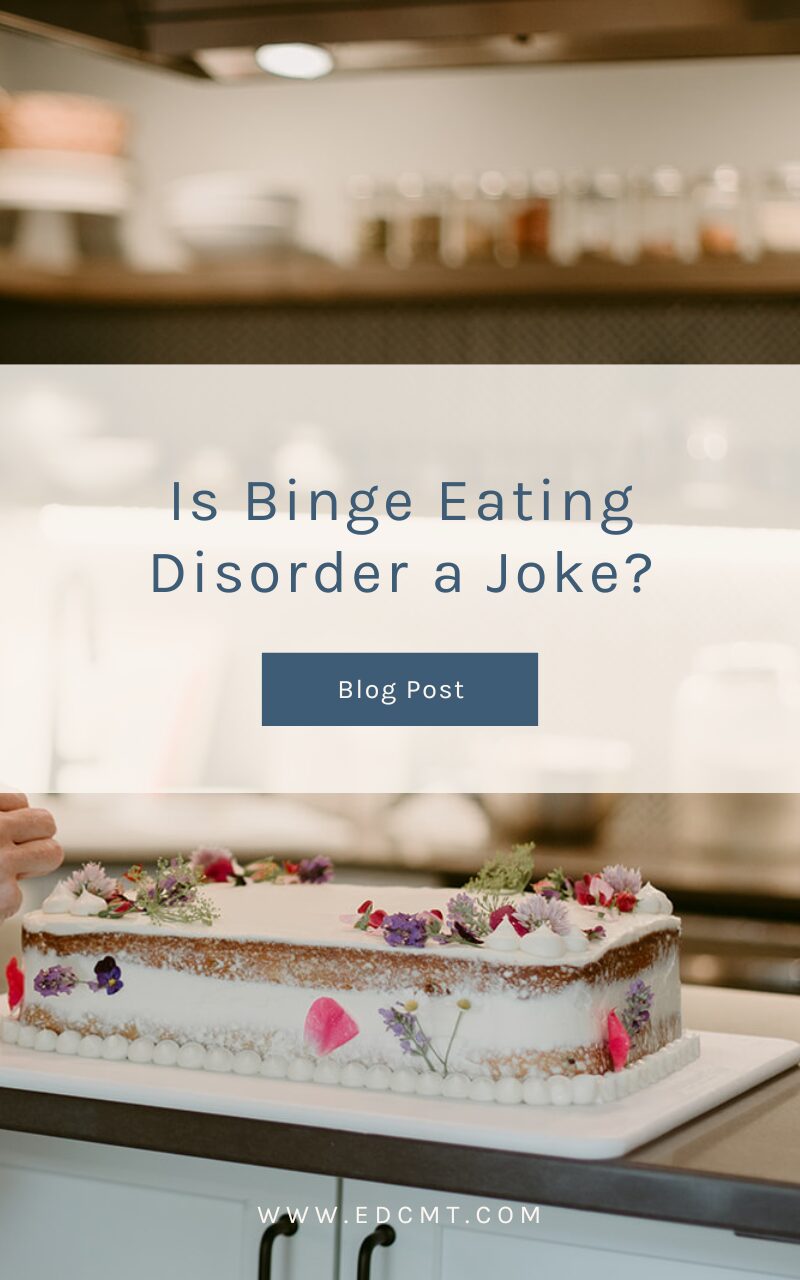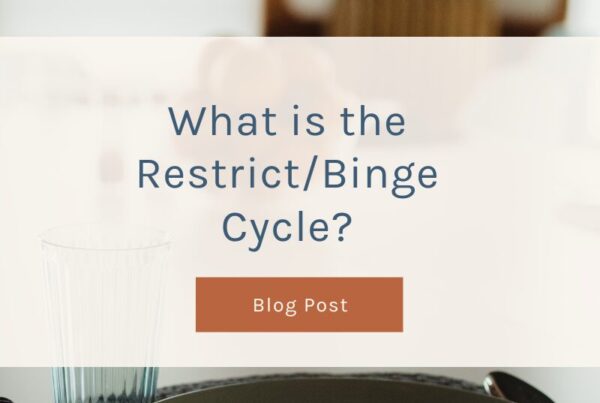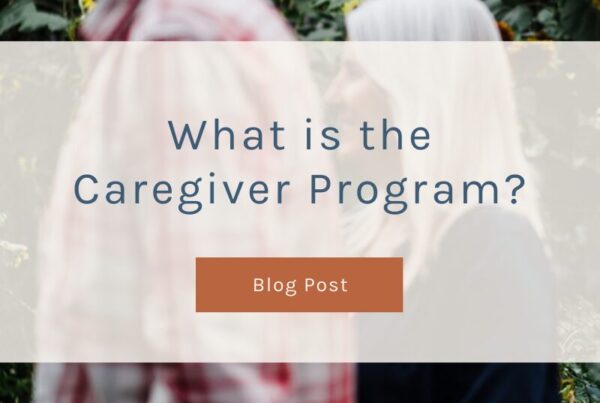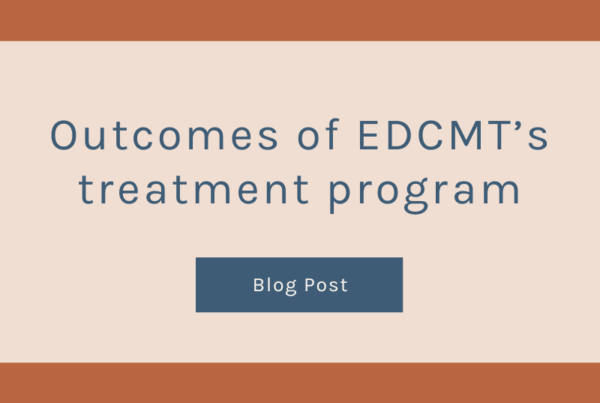
Binge eating disorder (BED) is an eating disorder that seems not to be taken seriously. Our team frequently hears the following: “I have the opposite of an eating disorder – I eat too much, ha ha ha.” Although there are times in our lives when we may eat more than is comfortable, a person who continually binge eats is in the same category as a person who continually doesn’t eat enough. They both have an eating disorder. If you find yourself wondering “is binge eating disorder serious?” the simple answer is yes.
BED is the most common eating disorder in the US, and is 3 times more prevalent than anorexia and bulimia combined. BED is characterized by repeated consumption of objectively large quantities of food at discrete times, feeling out of control around food, and often disassociation or distraction during binge. While restrictive eating is not a diagnostic criteria for BED, restriction is often observed in conjunction with binge eating, and even a restrictive mindset around food can lead to binge eating behaviors. The restrict/binge cycle is something we’ve talked about before, and is a common side effect of dieting and diet culture.
Treatment for binge eating disorder includes lots of things, but an important one is “legalizing” fear foods or binge foods. Allowing oneself to overcome fears of these foods can address their distorted beliefs about a particular food and interrupt catastrophic thinking about what will happen if they allow themselves to eat that food. Offering nutrition education about the nutrient qualities of foods, and the other purposes beyond nutrition that foods offer, and encouraging an “All Foods Fit” philosophy are all important steps.
The foods we eat provide so much more than just nutrition. Foods also offer us pleasure, comfort, reassurance, connection, companionship, stimulation, entertainment, and more. Rejecting the ideas that food should only provide nutrition and that willpower should always be used to overcome craving all the other things that food provides us are vital steps in binge eating recovery.
One topic that frequently comes up when discussing binge eating with patients is the use of DoorDash and other food delivery apps. These convenient apps can often support binge eating behaviors, because they make it easy to order food late at night, when most binge eating occurs. Paige Reddan, nutrition director at EDCMT, says that she will talk with patients about what it might feel like to get rid of those apps. What fears or anxiety does not having them bring up? And what ways can the patient prepare throughout the day so they don’t feel the need to binge at night? Rather than trying to rely on willpower to avoid binges, eating consistently throughout the day, legalizing fear foods, and removing triggers like delivery apps, are some of the best steps to take to prevent binge eating, as well as working with a trained team of eating disorder professionals to learn to better manage triggers and process the barriers around food and eating.
Though it might be joked about a lot in the general zeitgeist, binge eating disorder is definitely not a joke. It’s a complex eating disorder; however treatment is available. If you feel out of control around food, feel like you need to constantly think about food, or are experiencing the restrict/binge cycle, know that a life free of stress about food is possible, for everybody. Contact EDCMT to learn more about how we can help.




